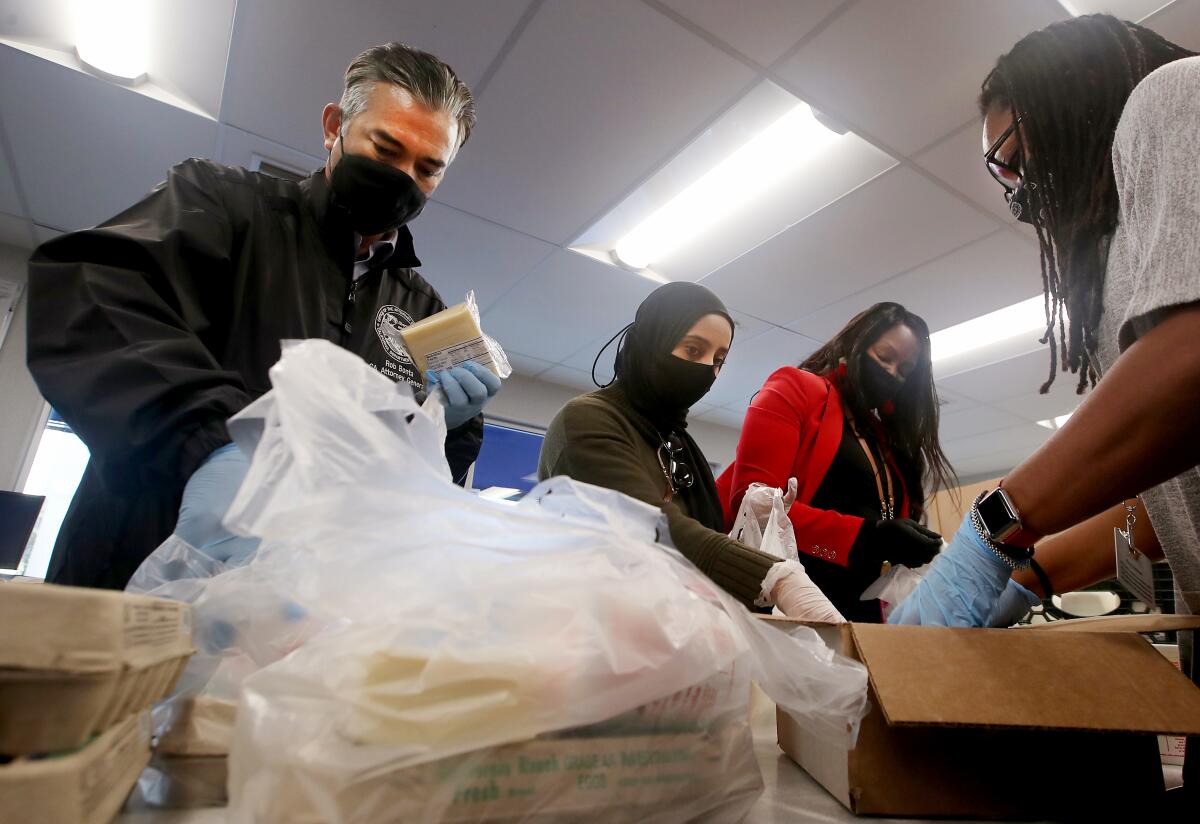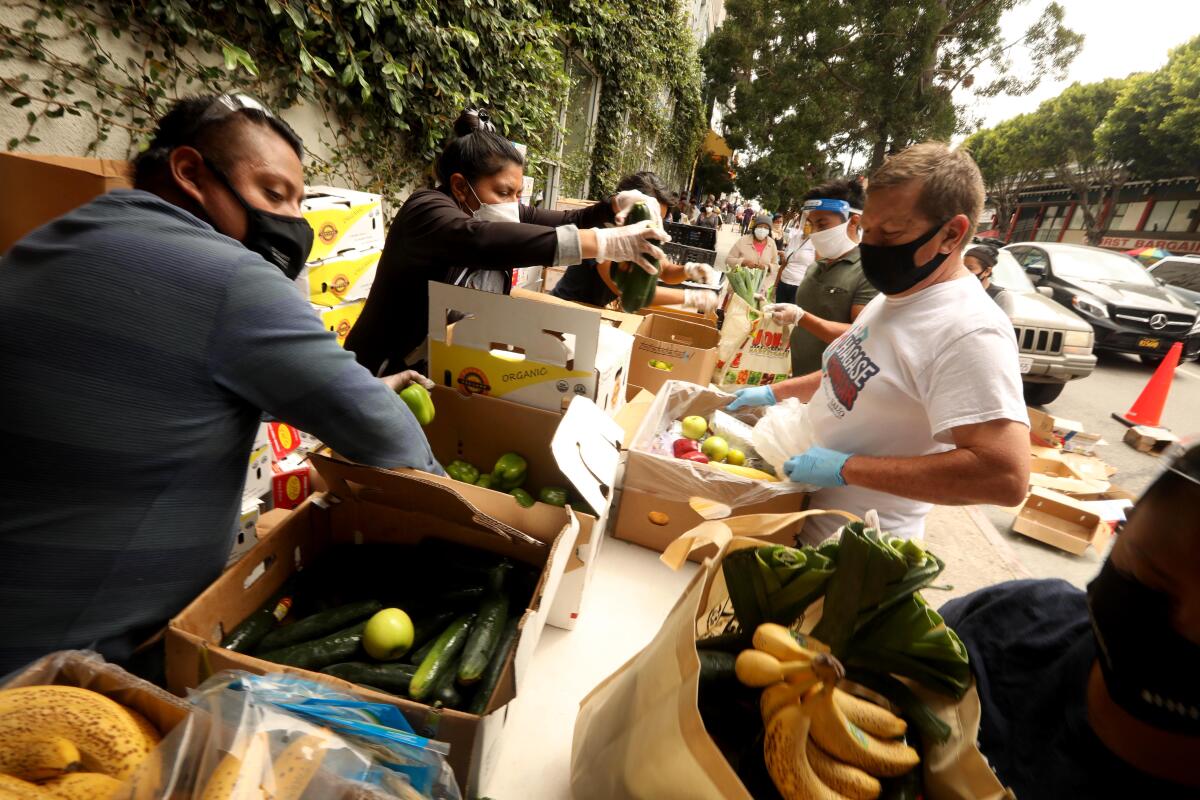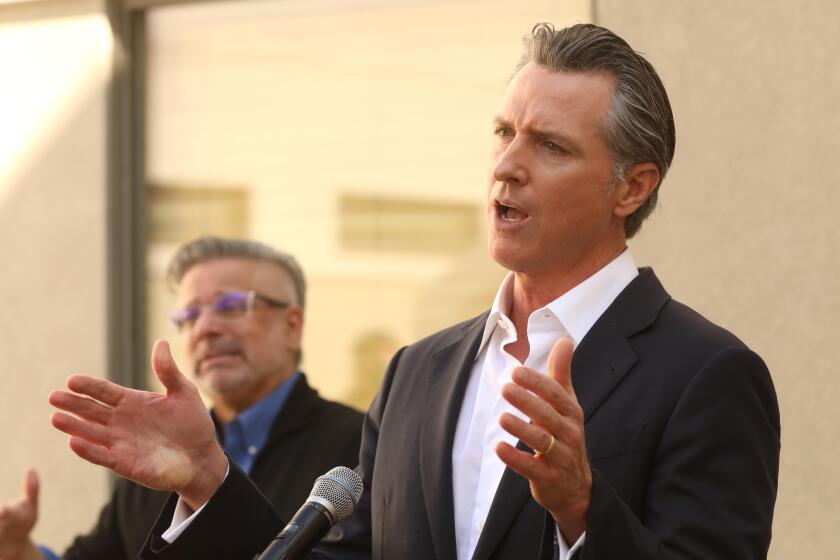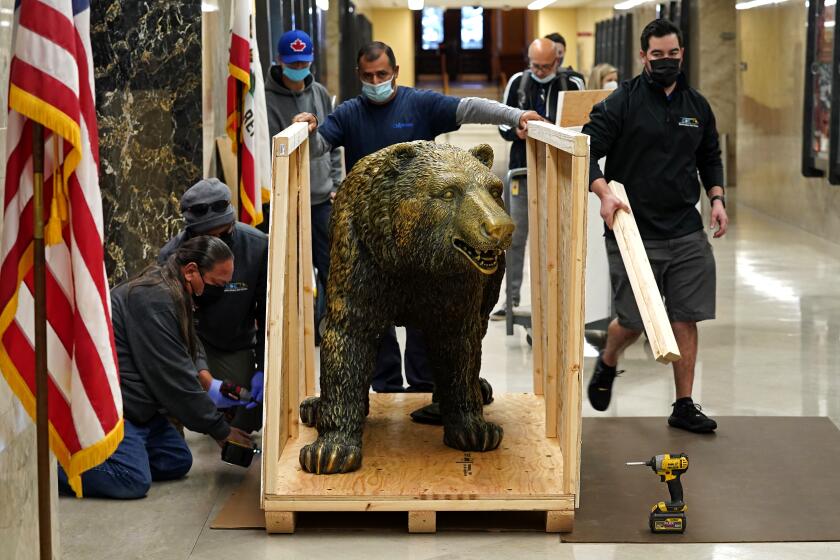Column: Look before you leap when it comes to holiday charitable donations

- Share via
SACRAMENTO — This is the season for giving to charities — and maybe throwing your money away.
Let’s assume that most charities are good. They’re sincere, effective and legitimate. But too many are inefficient, self-serving or even fake.
Too often, donors are filling the pockets of professional fundraisers rather than helping the needy or a worthy cause. The donation becomes a lump of coal.
“We try to assure that charitable money goes to help people instead of being misdirected to noncharitable purposes — like into the personal bank accounts of board members,” says state Atty. Gen. Rob Bonta. “We’re talking about millions of dollars.”
Many charities net 80% to 90% or even more of the donations collected by their paid fundraisers. But many also receive as little as 5% to 25% — or worse. Some even end up owing a fundraiser money because overhead exceeds the amount collected.
“Operation costs shouldn’t be more than 50%,” Bonta says.
I’d say 35% tops. If more than 35 cents of my dollar are going into a fundraiser’s wallet, count me out.
The attorney general each year prepares a lengthy report on charitable fundraisers. It shows how much they collect — and how much they turn over to the charity or keep themselves.
Bonta recently went on a little-noticed statewide tour warning the public about scammers while promoting local reputable charities.
“Fraudulent organizations are always seeking to capitalize on people’s desire to help,” he cautioned.
“Do your research before giving. Find out how the charity spends its donations. How much is spent directly on the charitable cause? How much goes to overhead and employee compensation?”
Yeah, right!
Gov. Gavin Newsom is justified in countering the Lone Star State’s cynical attack on abortion rights while strengthening California’s enforcement of gun laws.
You can waste your breath pumping a phone solicitor for answers. Or call the charity and curse while waiting on hold.
Or click onto the attorney general’s website and fumble around for the “Summary of Charitable Solicitation Campaigns Conducted by Professional Fundraisers.” And if you find it, dig into the 271 pages.
But more likely, you’re too harried with the holidays. Moreover, you don’t have much time left to send out charitable donations before Jan. 1 so they can be deducted on 2021 income tax returns.
So, you wing it.
The attorney general’s report shows the total amount of donations collected nationally by fundraisers soliciting in California. Most charities don’t use independent fundraisers, the attorney general’s office says. So, the report provides only a partial picture.
But those fundraisers surveyed collected slightly more than $1 billion in 2020, up $220 million over 2019.
The good news is that charities overall received 82% of the haul, 3.4% higher than in 2019 and 13.2% more than five years earlier.
A major reason for charities scoring bigger cuts and donors kicking in more money is that increasing numbers of people are contributing online. There’s less overhead soliciting electronically than by phone or mail. And it’s easier for a donor than writing a check and mailing it. At least for younger generations.
Among my frustrations are the harassing phone calls from solicitors.
“If you feel pressured or threatened just hang up,” Bonta said.
A big portion of the California Capitol will soon be demolished at a large cost to taxpayers, columnist George Skelton writes.
I hang up anyway. Get off my phone line!
Another gripe is that charities are never satisfied. Even if I give in December, I’m pestered every month in perpetuity. They clog my mailbox all year long. I trash the junk.
Some me send nickels or dimes — even an occasional dollar? Ridiculous. I pocket it and toss the envelope. If they can afford to mail money to millions of people, they don’t need my $50.
Actually, $50 barely pays for a solicitation. So, to recoup that expense, the charity sells my address, phone number and personal information to other solicitors. That’s why I get pleas from outfits that I’ve never heard of. Hate that, too.
The shady charities often use seductive words in their titles such as “cancer,” “veterans,” “firefighters” and “children.” They’re leeching off legitimate charities.
In January, then-Atty. Gen. Xavier Becerra and other attorneys general across the country pounced on a group called Healing Heroes that falsely advertised it used 100% of its donations to help wounded veterans. It really was spending only 16% on vets. The deceivers were shut down and forced to pay $95,000 to a legitimate veterans charity.
Some of the worst short-changing fundraisers collect money for public safety charities. Bonta reported that several worthy-sounding police and fire organizations received only small cuts from their solicitors.
They included the California Fraternal Order of Police, Firefighters Charitable Foundation, Irvine Police Assn., Volunteer Firefighters Alliance, California Police Youth Charities and National Assn. of Chiefs of Police. All received just 20% or less of the money that was donated to them.
Also on that list were the Autism Spectrum Disorder Foundation, Veterans Support Foundation, American Society for the Prevention of Cruelty to Animals, Childhood Leukemia Assn. and United Cancer Support Foundation.
At the upper end, these charities received at least 90% of their donations: Everytown for Gun Safety, Food for the Poor, Habitat for Humanity International, Save the Children Federation, International Fellowship of Christians & Jews, Leukemia & Lymphoma Society and Sierra Club.

The safest bet is to donate directly to local charities whose work you can observe.
I give mostly to a journalism scholarship fund at the Sacramento Press Club. I know 100% of my donation goes to a promising student who needs it.
But for charities that spend less than 65 cents of the donated dollar as advertised — or flood my mailbox and call incessantly — bah, humbug.
More to Read
Sign up for Essential California
The most important California stories and recommendations in your inbox every morning.
You may occasionally receive promotional content from the Los Angeles Times.













